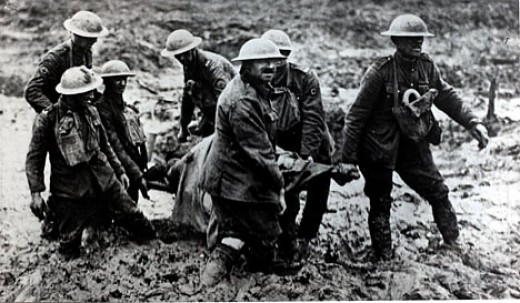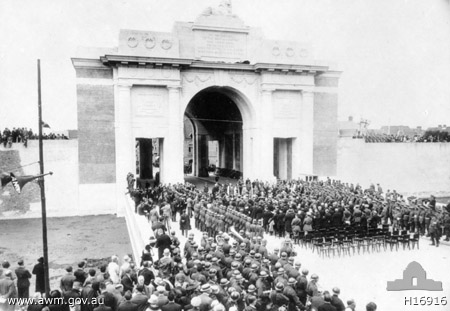Casualties Uncountable; An Epitaph for the War.
Editor’s note: This Blog of World War One will take a week’s break. It will return at the end of next week.
Special to The Great War Project
(10-11 November) At Ypres on the Western Front a century ago, the Germans try again to mount a huge offensive meant to leave the medieval Belgian town in German hands.
The Germans count this as the 22nd day of the Battle for Ypres, “a battle in which death had become a familiar comrade,” writes war historian John Keegan.
The focus of the German attack is just four miles from the town of Ypres, at a Belgian village called Nun’s Wood.
This town is not spared the destruction of war. “Already,” writes Keegan, “the magnificent Gothic buildings of the ancient wool town, the Cloth Hall, the Cathedral, the merchant weavers’ houses, were falling into ruin under the weight of heavy German artillery fire.”
The countryside “was taking on the pockmarked, denuded look that would characterize its landscape for years to come.”
Keegan reports, “a direct hit on Hooge chateau, two miles from Ypres, had killed many of the staff” of British forces in the area.
A battle rages there all day on this November 11th. There is no final victory for either side. The stalemate continues.
The battle for Ypres is not over. But the fighting there is subsiding – for the moment.
“Everywhere the Germans held the high ground,” writes Keegan, “dominating the shallow crescent of trenches the British, who were to be its guardians for most of the coming war of attack and defense, would call ‘the Salient.’”
The mounting casualties – the dead and wounded – are almost impossible to count on both sides. The Germans lose at least 41,000 Keegan reports. “The British survivors,” according to Keegan, “were less than half of the 160,000 which the British Expeditionary Force had sent to France.”
Many historians use this date, November 11th, a century ago as the end of the Battle for Ypres.
But it is not the end. There will be two more battles for Ypres in the coming four years. And on this very day, four years later on November 11th, 1918 the war will indeed end, and then there will be a final count of the dead. It will number in the many millions, and this day will be called Armistice Day in Europe, Veterans Day in the United States.
An epitaph for today, two lines from poet John Maxwell Edmonds:
When you go home, tell them of us and say
For their tomorrow, we gave our today.


